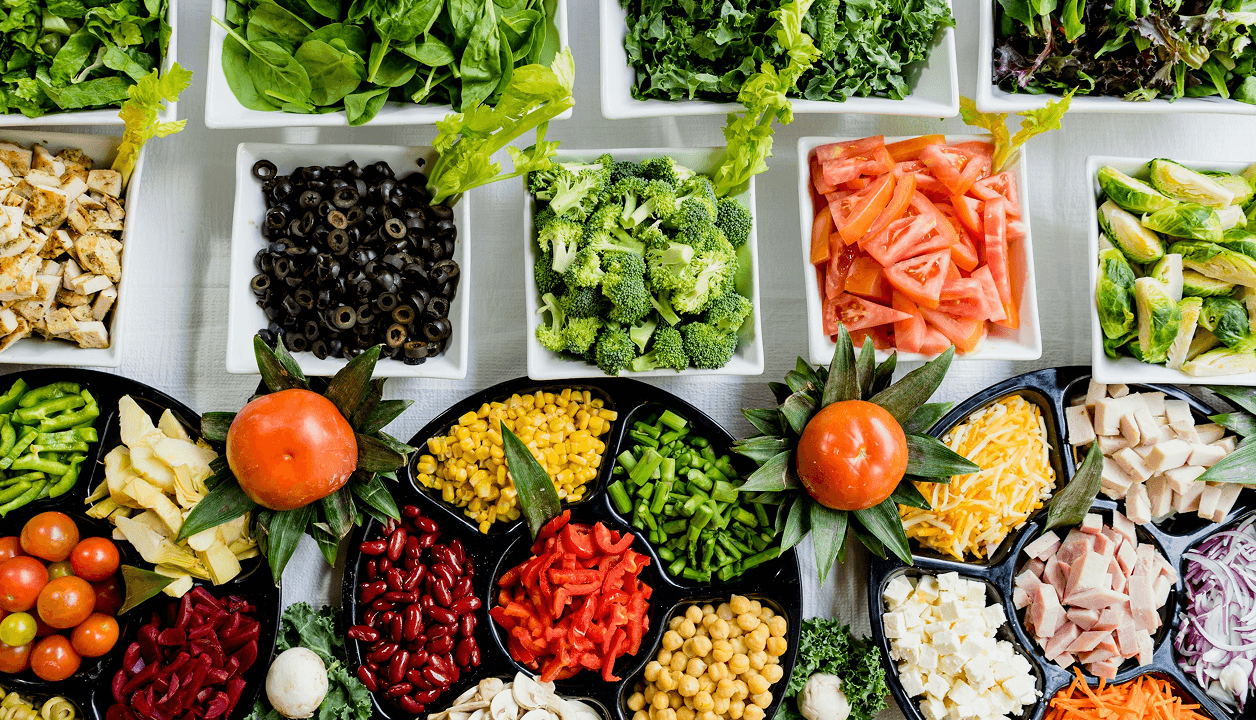Daily
pulse
Daily
pulse
Saturday, Mar 1, 2025
2:47 PM
Daily pulse
The Hidden Dangers of Ultra-Processed Foods: Are We Eating Ourselves Sick?
The Hidden Dangers of Ultra-Processed Foods: Are We Eating Ourselves Sick?
The Hidden Dangers of Ultra-Processed Foods: Are We Eating Ourselves Sick?
POSTED:
POSTED:
POSTED:
March 13, 2025
March 13, 2025
March 13, 2025
BY:
BY:
BY:
Fox Robert
Fox Robert
Fox Robert



Ultra-processed foods have become a staple in modern diets, offering convenience and affordability at the expense of nutritional quality. These foods go beyond simple processing, containing artificial flavors, preservatives, emulsifiers, and high levels of sugar, salt, and unhealthy fats. Examples include packaged snacks, soft drinks, instant noodles, processed meats, and frozen meals. While they may be convenient, growing evidence suggests that regular consumption of ultra-processed foods is fueling a global health crisis.
One of the biggest concerns is the link between ultra-processed foods and obesity. These foods are often calorie-dense but nutrient-poor, leading to overeating and weight gain. Their high sugar and fat content contribute to metabolic disorders, making them a major driver of the obesity epidemic. The excessive salt, sugar, and trans fats found in processed foods also increase the risk of heart disease by raising blood pressure and cholesterol levels.
Another alarming consequence of ultra-processed food consumption is the rise in type 2 diabetes. Refined carbohydrates in these foods cause blood sugar spikes, increasing insulin resistance over time. Studies also suggest a potential connection between regular intake of ultra-processed foods and certain cancers, including colorectal and breast cancer. Researchers believe this is due to harmful additives, preservatives, and the inflammatory effects of poor nutrition.
Beyond physical health, ultra-processed foods can negatively impact mental well-being. Diets high in processed foods have been associated with increased rates of depression and anxiety. The lack of essential nutrients, combined with excessive sugar and unhealthy fats, may contribute to mood swings and cognitive decline. As a result, experts emphasize the importance of reducing reliance on these foods for overall well-being.
One of the most effective ways to minimize ultra-processed food consumption is cooking more meals at home. Using fresh, whole ingredients allows for better control over nutritional content. Reading food labels carefully can also help identify and avoid products with long ingredient lists filled with additives. Swapping sugary drinks for water and choosing whole foods like fruits, vegetables, lean proteins, and whole grains can further support a healthier diet.
Limiting fast food consumption is another crucial step in reducing exposure to ultra-processed foods. Many fast-food meals are highly processed, containing unhealthy fats and excessive sodium. Opting for healthier alternatives, such as homemade meals or nutrient-dense snacks, can significantly improve long-term health outcomes.
As awareness grows, more people are shifting towards whole-food-based diets, such as the Mediterranean and plant-based diets, which emphasize natural, unprocessed ingredients. Governments are also considering stricter regulations on highly processed foods, including labeling requirements and restrictions on marketing to children. Meanwhile, food technology innovations are developing healthier processed food alternatives with improved nutritional profiles.
Ultra-processed foods may be convenient, but their long-term health effects are concerning. Making conscious food choices can protect against chronic diseases and promote overall well-being. The journey to better health starts with mindful eating, prioritizing fresh, whole foods over processed alternatives.
Ultra-processed foods have become a staple in modern diets, offering convenience and affordability at the expense of nutritional quality. These foods go beyond simple processing, containing artificial flavors, preservatives, emulsifiers, and high levels of sugar, salt, and unhealthy fats. Examples include packaged snacks, soft drinks, instant noodles, processed meats, and frozen meals. While they may be convenient, growing evidence suggests that regular consumption of ultra-processed foods is fueling a global health crisis.
One of the biggest concerns is the link between ultra-processed foods and obesity. These foods are often calorie-dense but nutrient-poor, leading to overeating and weight gain. Their high sugar and fat content contribute to metabolic disorders, making them a major driver of the obesity epidemic. The excessive salt, sugar, and trans fats found in processed foods also increase the risk of heart disease by raising blood pressure and cholesterol levels.
Another alarming consequence of ultra-processed food consumption is the rise in type 2 diabetes. Refined carbohydrates in these foods cause blood sugar spikes, increasing insulin resistance over time. Studies also suggest a potential connection between regular intake of ultra-processed foods and certain cancers, including colorectal and breast cancer. Researchers believe this is due to harmful additives, preservatives, and the inflammatory effects of poor nutrition.
Beyond physical health, ultra-processed foods can negatively impact mental well-being. Diets high in processed foods have been associated with increased rates of depression and anxiety. The lack of essential nutrients, combined with excessive sugar and unhealthy fats, may contribute to mood swings and cognitive decline. As a result, experts emphasize the importance of reducing reliance on these foods for overall well-being.
One of the most effective ways to minimize ultra-processed food consumption is cooking more meals at home. Using fresh, whole ingredients allows for better control over nutritional content. Reading food labels carefully can also help identify and avoid products with long ingredient lists filled with additives. Swapping sugary drinks for water and choosing whole foods like fruits, vegetables, lean proteins, and whole grains can further support a healthier diet.
Limiting fast food consumption is another crucial step in reducing exposure to ultra-processed foods. Many fast-food meals are highly processed, containing unhealthy fats and excessive sodium. Opting for healthier alternatives, such as homemade meals or nutrient-dense snacks, can significantly improve long-term health outcomes.
As awareness grows, more people are shifting towards whole-food-based diets, such as the Mediterranean and plant-based diets, which emphasize natural, unprocessed ingredients. Governments are also considering stricter regulations on highly processed foods, including labeling requirements and restrictions on marketing to children. Meanwhile, food technology innovations are developing healthier processed food alternatives with improved nutritional profiles.
Ultra-processed foods may be convenient, but their long-term health effects are concerning. Making conscious food choices can protect against chronic diseases and promote overall well-being. The journey to better health starts with mindful eating, prioritizing fresh, whole foods over processed alternatives.



More on
More on
health
health
View all
View all
Scroll
Back to top



Promote your brand with us! Gain exclusive exposure through our platform.
Promote your brand with us! Gain exclusive exposure through our platform.
Promote your brand with us! Gain exclusive exposure through our platform.
This Advertising Block provides a flexible space for your promotion, allowing you to customize it with your own content, visuals, and calls to action. Highlight your brand, showcase your services, or drive traffic to your projects with ease.
This Advertising Block provides a flexible space for your promotion, allowing you to customize it with your own content, visuals, and calls to action. Highlight your brand, showcase your services, or drive traffic to your projects with ease.
This Advertising Block provides a flexible space for your promotion, allowing you to customize it with your own content, visuals, and calls to action. Highlight your brand, showcase your services, or drive traffic to your projects with ease.
Daily pulse
With a focus on accuracy and relevance, we make it easy to navigate the ever-changing news landscape. Stay ahead with stories that matter, presented in a dynamic and engaging way.
© 2025 Daily Pulse. All rights reserved
Designed & Developed
Daily pulse
With a focus on accuracy and relevance, we make it easy to navigate the ever-changing news landscape. Stay ahead with stories that matter, presented in a dynamic and engaging way.
© 2025 Daily Pulse. All rights reserved
Designed & Developed
Daily pulse
With a focus on accuracy and relevance, we make it easy to navigate the ever-changing news landscape. Stay ahead with stories that matter, presented in a dynamic and engaging way.
© 2025 Daily Pulse. All rights reserved
Designed & Developed
Daily pulse
With a focus on accuracy and relevance, we make it easy to navigate the ever-changing news landscape. Stay ahead with stories that matter, presented in a dynamic and engaging way.
© 2025 Daily Pulse.
All rights reserved
Designed & Developed
Scroll
Back to top


